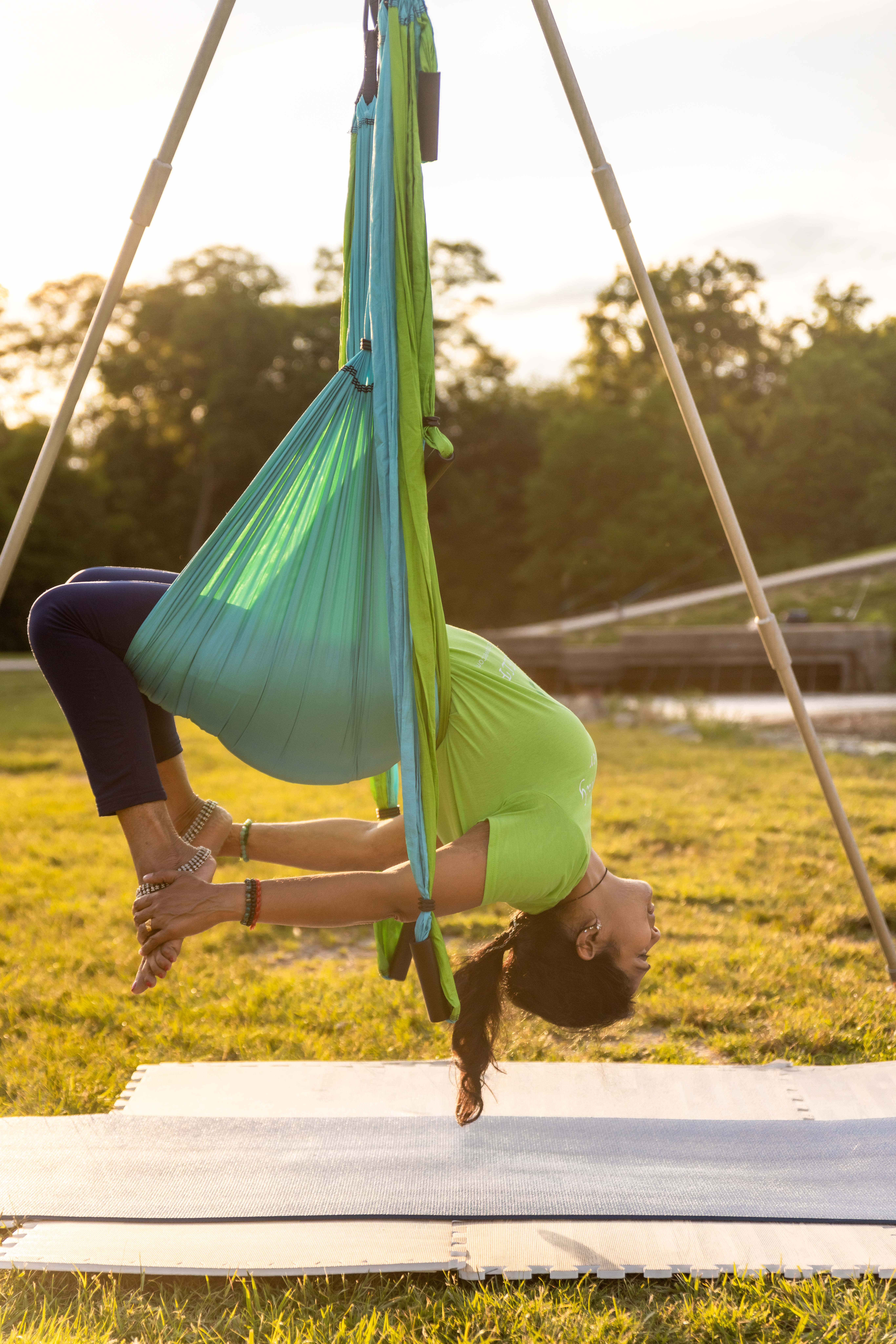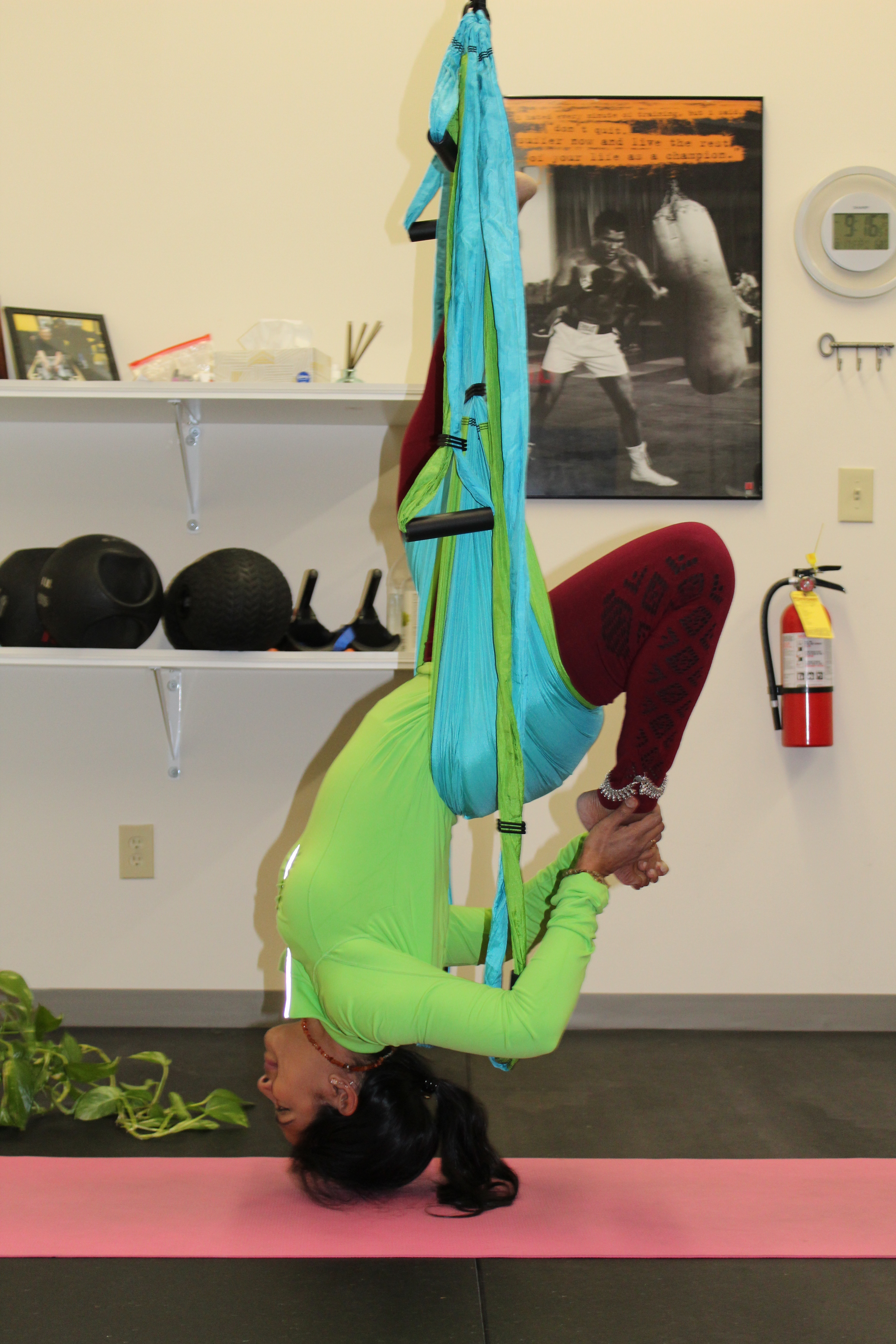
Find Balance with trapeze Yoga & Harmony in Traditional Yoga
Yoga is a versatile practice that can help anyone improve flexibility, mobility, and strength in various ways:
Flexibility | Stretching
Yoga involves a wide range of stretches that target different muscle groups, gradually increasing flexibility over time.
Dynamic Movements
Many yoga poses involve fluid, dynamic movements that improve joint flexibility and range of motion.
Holding Poses
Holding yoga poses allows for deep stretching, helping muscles and ligaments lengthen and become more flexible.
Mobility | Joint Health
Yoga promotes the health of joints by moving them through their full range of motion, enhancing mobility.
Balance
Balancing poses in yoga challenge stability and coordination, which can improve overall mobility.
Strength | Bodyweight Resistance
Yoga utilizes your body weight to build strength, especially in muscles that may not be targeted in traditional strength training.
Core Strength
Many yoga poses require strong core engagement, leading to improved core strength and stability.
Functional Strength
Yoga movements often mimic real-life activities, enhancing functional strength for daily tasks.
Mind-Body Connection | Awareness
Yoga emphasizes mindful awareness of body sensations, leading to better control and coordination of movements.
Relaxation
Reducing stress through yoga can alleviate tension in muscles, allowing for improved strength and mobility.
Breathing | Controlled Breathing
Yoga incorporates controlled breathing techniques that can increase lung capacity and oxygenate muscles, enhancing endurance and performance.
Balance
Standing and balancing poses in yoga challenge proprioception and improve balance, which is essential for stability and mobility.
Adaptability
Yoga can be adapted to individual fitness levels and goals, making it accessible to people of all ages and abilities.
To reap the full benefits, it’s essential to practice yoga regularly, ideally under the guidance of a qualified instructor who can tailor the practice to individual needs and goals. Consistency and patience are key to achieving significant improvements in flexibility, mobility, and strength through yoga.
Yoga on the Trapeze
Trapeze yoga, can be beneficial for a 39-year-old woman or anyone looking to improve flexibility and mobility in several ways:
Decompression of the Spine
Trapeze yoga allows for gentle traction of the spine, which can help relieve pressure and tension in the lower back muscles, promoting better spinal flexibility and mobility.

Improved Flexibility
Performing yoga poses while suspended in the trapeze can help increase flexibility by allowing for deeper stretches and a wider range of motion than traditional yoga.

Strengthening Core Muscles
Engaging the core muscles to stabilize in aerial poses helps strengthen the abdominal and back muscles, leading to improved stability and mobility.
Balance and Coordination
Yoga on the Trapeze challenges balance and coordination as you navigate different poses while suspended, promoting better overall body awareness.

Enhanced Joint Mobility
The swinging and hanging aspects of trapeze yoga can help improve joint mobility, particularly in the shoulders and hips.
Stress Reduction
Yoga, in general, promotes relaxation and stress reduction, which can indirectly improve flexibility by reducing muscle tension and stiffness.
Increased Blood Flow
Inverting in the trapeze can enhance blood circulation, potentially aiding in joint health and mobility.
It’s essential for a 39-year-old woman or anyone considering Yoga on the Trapeze to start with a qualified instructor who can tailor the practice to her specific needs and ensure safety. Additionally, consistency in practice is key to seeing improvements in flexibility and mobility over time. Always consult with a healthcare professional before beginning any new exercise program, especially if you have any pre existing medical conditions.
Start Living Now
#traditionalyoga #yogaonthetrapeze #empoweryourself


